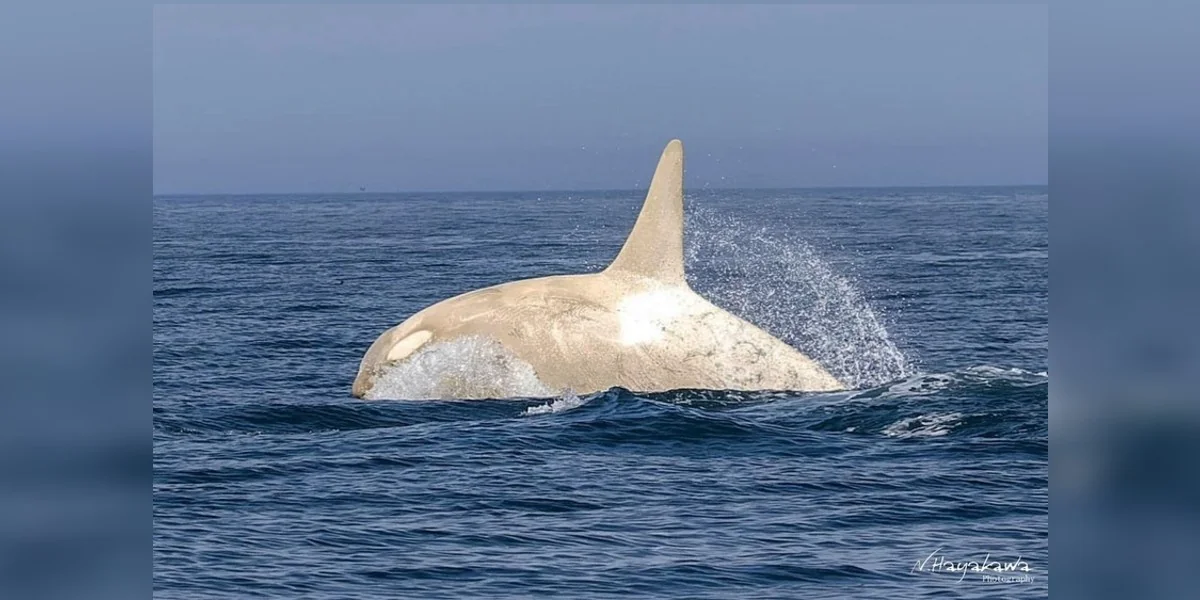Photographer SHOCK: Rare albino Orca spotted leaping out of water off Japanese coast

As a wildlife photographer, N. Hayakawa has spent nearly two decades following land and sea animals across Japan, hoping to capture images of them in their natural habitats.
Of all the animals they’ve filmed, a group of orcas gave them the shock of their career last year when the school of whales revealed one unusual member.
“This is the first time I’ve encountered a white orca after 15 years of photographing orcas in Rausu (Hokkaido, Japan),” Hayakawa wrote on X.

Hayakawa was stunned to see an all-white male orca appear among a pod of typically pigmented whales. They reached for their camera, hoping to capture the moment on film to share with their animal-loving community online.
“My legs were shaking as I photographed the white orcas I met for the first time,” Hayakawa wrote on Instagram. “[It] looks like a golden-ish cream-colored orca synthesized into a blue sea. I still think it was a dream.”
But as they reviewed the pictures of the whale, they confirmed it wasn’t a dream at all. There really was a cream-colored orca in the water with the others, seemingly enjoying life as if nothing were different at all.

You can watch the whale swim with his friends here:
Hayakawa returned to the same spot soon after, hoping to photograph the white orca again. To their surprise, yet another white orca appeared — this time, a female.
They steadied their camera and quickly pressed the shutter-release button. As they captured a series of pictures of the orca, they noticed an interesting detail about the whale’s face.

“The eyes appear black,” Hayakawa wrote on Instagram.
Hayakawa wasn’t immediately sure what condition the pale whales had to cause their unusual skin tone, but the color of their eyes suggested they may have luecism instead of being fully albino.
According to Treehugger, “While albinism refers to the complete lack of melanin — the natural pigment that gives skin, feathers, hair, and eyes their color — leucism involves a partial loss of pigmentation. Animals with albinism are white or pale in color over their entire bodies but also have eyes that are pale, pink, or red in color, while animals with leucism often have partially white or patchy features with darker eyes.”
The white whales might seem completely void of melanin, but their eyes and faint body markings tell a different story. These whales likely inherited leucism from their parents, creating their striking cream-colored bodies.
Though they are different conditions, albinism and leucism in wild animals can sometimes be dangerous — causing the animal to stand out to predators more easily. Luckily, these white orcas seemed to be accepted and protected by their typically colored whale counterparts.
That’s why, when Hayakawa returned to the same ocean in the following days, they continued to see the white whales swimming with their friends and enjoying life overall.
Life as a wildlife photographer is filled with surprises and unexpected moments. Hayakawa has since continued photographing other species in their hometown, such as the Japanese dwarf flying squirrel, but there’s something about the white whales that keeps luring them back to the water.
And they hope, having identified one white whale as male and the other as female, to discover another little white whale in the pod one day.


